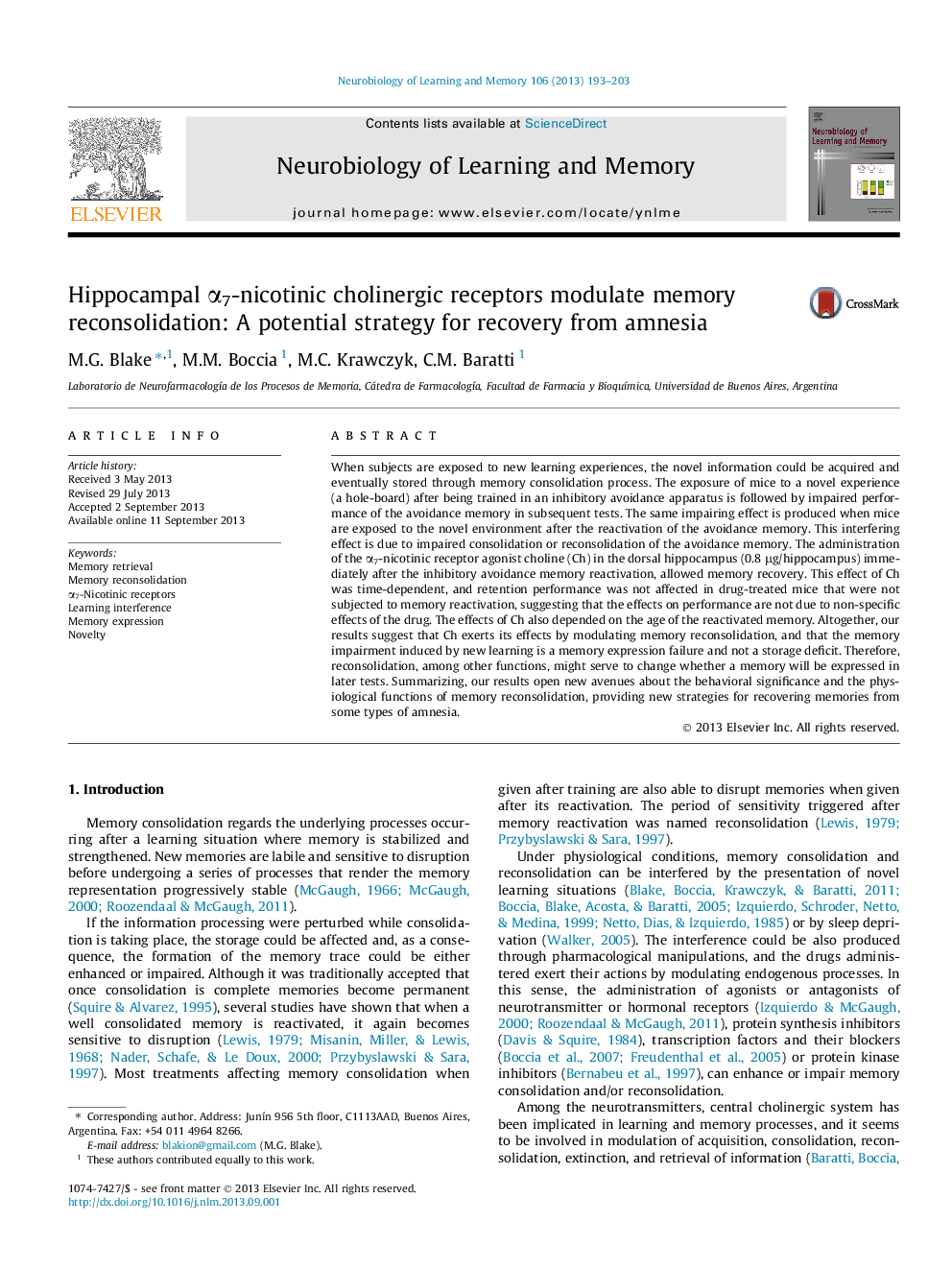| کد مقاله | کد نشریه | سال انتشار | مقاله انگلیسی | نسخه تمام متن |
|---|---|---|---|---|
| 936606 | 1475169 | 2013 | 11 صفحه PDF | دانلود رایگان |

• Learning interference leads to memory impairment.
• Intra-hippocampal administration of choline modulates memory reconsolidation.
• Choline reverses learning interference by enhancing memory reconsolidation.
• Learning interference cause memory expression deficit, but not storage impairment.
• Reconsolidation could modify the ability of a memory for being expressed later.
When subjects are exposed to new learning experiences, the novel information could be acquired and eventually stored through memory consolidation process. The exposure of mice to a novel experience (a hole-board) after being trained in an inhibitory avoidance apparatus is followed by impaired performance of the avoidance memory in subsequent tests. The same impairing effect is produced when mice are exposed to the novel environment after the reactivation of the avoidance memory. This interfering effect is due to impaired consolidation or reconsolidation of the avoidance memory. The administration of the α7-nicotinic receptor agonist choline (Ch) in the dorsal hippocampus (0.8 μg/hippocampus) immediately after the inhibitory avoidance memory reactivation, allowed memory recovery. This effect of Ch was time-dependent, and retention performance was not affected in drug-treated mice that were not subjected to memory reactivation, suggesting that the effects on performance are not due to non-specific effects of the drug. The effects of Ch also depended on the age of the reactivated memory. Altogether, our results suggest that Ch exerts its effects by modulating memory reconsolidation, and that the memory impairment induced by new learning is a memory expression failure and not a storage deficit. Therefore, reconsolidation, among other functions, might serve to change whether a memory will be expressed in later tests. Summarizing, our results open new avenues about the behavioral significance and the physiological functions of memory reconsolidation, providing new strategies for recovering memories from some types of amnesia.
Figure optionsDownload as PowerPoint slide
Journal: Neurobiology of Learning and Memory - Volume 106, November 2013, Pages 193–203